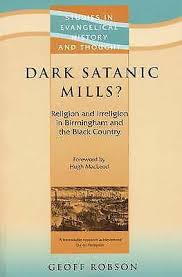
Was the nineteenth-century working class as irreligious as the 1851 census of religious worship appeared to show? Or were there some industrial areas where large numbers of them actually went to church? Birmingham and the Black Country provide evidence for both religion and irreligion, but was the better church attendance of the Black Country the result of panic reactions to cholera epidemics or intensive evangelism? How did ordinary people respond to the attempts of the churches to recruit them? Did evangelical conversion result from fear of hell? This book sets out to answer these questions on the basis of an analysis of original sources, many of them unpublished, from the years leading up to the 1851 census.



